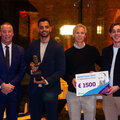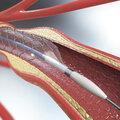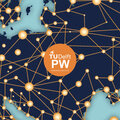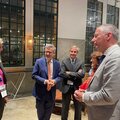News formats
Homepage format
News format - Overview
- Widget
Students Amos Yusuf, Mick Dam & Bas Brouwer winners of Mekel Prize 2024

Master students Amos Yusuf, from the ME faculty (Mick Dam, from the EEMCS faculty and graduate Bas Brouwer have won the Mekel Prize 2024 for…
/2024/tu-delft/students-amos-yusuf-mick-dam-bas-brouwer-winners-of-mekel-prize-2024
Veiligere en efficiëntere bloedvatbehandelingen door innovatieve kathetertechnologie

Wereldwijd worden jaarlijks meer dan 200 miljoen katheters gebruikt voor de behandeling van vaatziekten zoals hartaandoeningen en…
/2024/tu-delft/veiligere-en-efficientere-bloedvatbehandelingen-door-innovatieve-kathetertechnologie
Intreerede: Optimalisatie van werktuigen sleutel tot efficiënter logistiek systeem

De bewerking en het transport van materialen kan veel efficiënter. Dat stelt TU Delft hoogleraar Dingena Schott in haar intreerede…
/2024/me/nieuws/intreerede-optimalisatie-van-werktuigen-sleutel-tot-efficienter-logistiek-systeem
Een flexibele backstop als deel van de oplossing voor netcongestie

Uit naam van het TU Delft PowerWeb Institute overhandigen onderzoekers Kenneth Brunninx en Simon Tindemans op 12 november 2024 een Position…
/2024/powerweb-institute/een-flexibele-backstop-als-deel-van-de-oplossing-voor-netcongestie
Toespraak Tim van der Hagen bij World Future Forum

Voorzitter van het College van Bestuur en Rector Magnificus Tim van der Hagen sprak deze week op het World Future Forum in Lissabon.
/2024/tu-delft/toespraak-tim-van-der-hagen-bij-world-future-forum
Event format - Overview
november
januari








